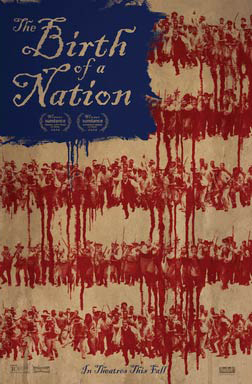The most gripping and visceral film experience in 2016, Nate Parker’s “The Birth of a Nation” cements itself as a powerful film despite the controversy surrounding an imperfect character and an imperfect storyteller.
The Grisly Truth
Parker’s film takes its name from D.W. Griffith’s infamously polarized film from 1915. Griffith’s “The Birth of a Nation” would stand as a piece of artistic brilliance, but its despicable portrayal of African Americans and glorification of the KKK reopened festering wounds of America’s violent racial history.
101 years later, Parker and the African American culture reclaims the infamous movie title and exposes the same wounds of the unchanged and divided racist America, but this time with the grisly truth behind Nat Turner’s rebellion.
Atrocities Unveiled
This film tackles the issue of white privilege on a more cutting level than ever before. Never has a film so accurately unveiled the severity of the atrocities committed against a culture deemed subhuman. Yes, slavery has become abolished and segregation has become illegal, but racism against minorities remains an issue. Films like this will only continue exposing the colorblindness and racial division in white America. So, for those who read this and are angered and offended by the film’s criticisms of an overly white America, watch Parker’s film before drawing conclusions.
Parker’s debut decimates the fortifications of division in America. Many will demonize Parker for glorifying a violent religious zealot. However, films of this magnitude contribute to the healing process of the United States. “Birth of a Nation” provides those opposed to Turner’s actions a chance to fathom the idea of people behaving similarly under the same animalized conditions for an extended period regardless of their race or religion.
Visceral Imagery
Parker’s visceral imagery compellingly hammers remorse into viewers’ hearts. Scenes of little white children pulling around little black children on leashes in animalistic fashion evokes anger. Scenes of a slave’s teeth precedingly knocked out one-by-one by means of hammer and chisel induce audiences into twisting and squirming in seats, shedding tears of not just horror but of remorse. These horrific images are implemented to move those who are blind.
Those who prematurely deprecate the film for “glorifying a murderer” should look past their own convictions. Primarily, recognize the artistic value and care put into a beautiful film. This elegantly constructed film proceeds with clever jump cuts and surreal dream sequences. A beautiful color palette dictates the mood with a misty, blue haze constituting a somber and gloomy vibe over heavy subject matter.
In early 2016, this film swept audiences off their feet at the Sundance Film Festival, winning the top two awards. Controversy quickly surrounded director and actor Nate Parker and may deter its deserved eminence. In August, Parker’s past became unearthed and the early-year critical acclaim surrounding this film morphed into boycotts and adverse reviews.
An urgency exists for audiences and critics to view this film under the same light as they would a Woody Allen or Roman Polanski film. As human beings, the two embody immorality, but Polanski and Allen still represent two of the most brilliant filmmakers. Separate the art and the artist’s talents from their skewed sense of morality. Treat Parker likewise. If he did sexually assault someone, he deserves punishment. But until then, Parker has presented a poignant film for a time where racial tensions continue to thrive.
Whitewashed Hollywood needs more black filmmakers like Parker in order to continue to retell black history and to keep wrenching reality out of the tainted white rag of America. American society needs films like “The Birth of a Nation” so it becomes more conscious of the true reality of black history in America.







